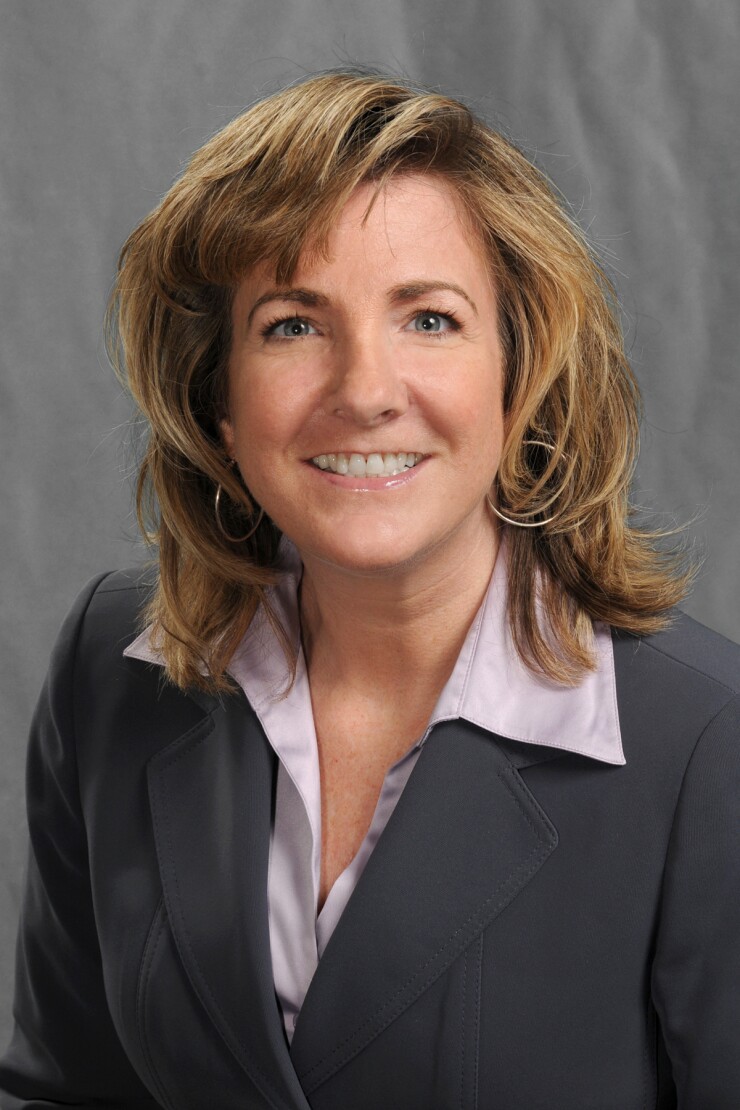WASHINGTON — There are no shortage of opinions on how advisers should incorporate technology to bolster their practices, but for anyone doubting the rationale for investing in a slick, customer-facing online platform, Edward Jones, which has been studying the matter closely, has some alarming findings.
"Our studies show the biggest challenge that we have is 25% of our clients would leave us despite the fact that they have a great relationship with their financial adviser if they do not have a good online experience," says Lisa Klassen, a principal at the firm who heads mutual fund operations and financial adviser tools.
"So that is for sure a challenge for our entire industry — [that clients would] leave a financial adviser that you love, that you get a great plan from, because of the online experience," adds Klassen, who was speaking during a panel discussion at ICI's general membership meeting

And the value that clients put on technology is hardly segmented by generation. According to Edward Jones' surveys, some 80% of the firm's baby boomer clients check their portfolios online, and 90% of its high-net-worth clients are engaged in social media.
INCORPORATE MORE TECH
With the advisers, it can be a different story, she says, noting that the firm has had some difficulty working with its veteran branch managers as it gently encourages them to incorporate more digital tools in their work with clients.
Other panelists emphasized a broader effort to professionalize the role of the financial planner and adviser, echoing in a sense the work that the CFP Board has been doing to elevate the CFP designation as a singular professional credential.
"We really need to move [away] from what has been called forever an industry to really a true profession in the same way that the medical profession, the engineering profession [are] seen," says Steve Samuels, managing director of client segments and adviser development at Bank of America Merrill Lynch. "I believe we're headed there, and it's terrific."
"Most advisers I think are on board," he adds. "They're embracing the changes that are in front of them, but we have to make sure that their practices and the way that they deliver advice is aligned to where clients want us to go. And that may sound simple in terms of words, but there's a lot of work to be done to do that."
CLIENT EXPECTATIONS
Edward Jones' case for a sleek, user-friendly online platform is of course only part of the client-retention challenge. Klassen notes that in survey after survey that the firm has conducted or commissioned, clients report similar expectations when asked about what they want from their advisers and the fund companies they invest with.
The firm has had some difficulty working with its veteran branch managers as it gently encourages them to incorporate more digital tools in their work.
"The themes are the same regardless of who talks to the client — they come and tell us the same things are important: first and foremost their relationship with the financial adviser and the branch office administrator is key to them," she explains. "But also us understanding the client's tolerance for market volatility, the client understanding the fees and commissions that we receive and they pay us, and then this notion of ... the creating and the constant reviewing of a financial plan for whatever their need is."
"Whether it's college or retirement, those things are key and if we do that right we get client loyalty. And it's not a slam dunk — those are hard things to achieve," Klassen adds. "But if we do that, we do keep clients."
So it's hardly technology for technology's sake, but rather how advisers can use technology to support their bedrock mission of helping clients achieve their goals, and feel like their financial professionals are working on their behalf.
CHANGE IN TOOLS
However, Edward Jones emphasizes that technology is an integral part of meeting and serving clients on their own terms, which, increasingly, involves engaging with them when they can't make it into the branch office. It becomes incumbent on home offices, then, to ensure that they are supporting their branches and equipping them with the digital tools and technologies to meet a rising level of client expectations.
"Our most successful financial advisers take a holistic approach to serving clients, and so therefore we have to build tools that do that same thing, so all the way from the risk assessment to the client to goal attainment and assessing that," Klassen says.
"And interestingly, you'll see the change in the tools that the financial advisers use to engage clients even just when you walk into their offices," she further explains. "So every financial adviser has two screens on their desktop, and they have a flat-screen TV over their sitting area where a lot of the work happens and they have video conferencing on every desktop."
"It's back to the client's terms of what do you want to look at, how can I visualize the big picture for you, and a lot of clients are a hundred miles away or they snow-bird in Florida," Klassen says. "So how do we stay engaged despite the fact that you're not down the street and it's not convenient for you to stop by, so all of those things the home office is having to make sure that they're supporting."





